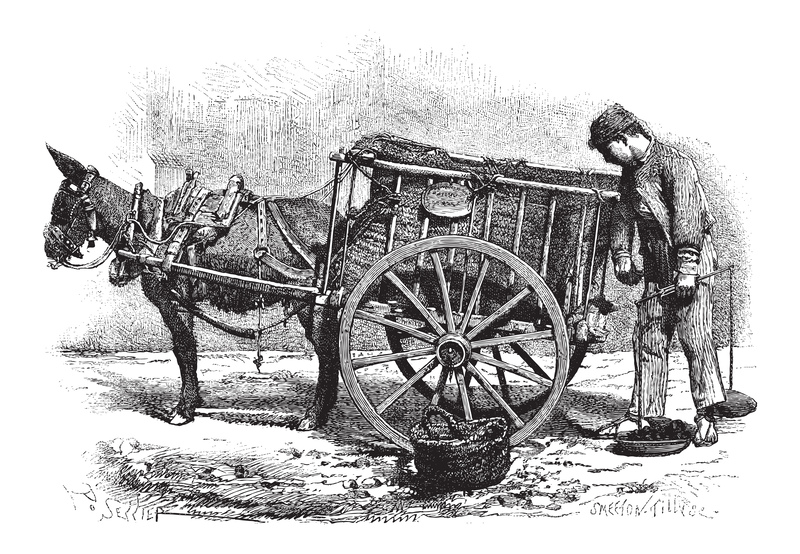Waste mismanagement has become a critical global issue, posing significant threats to our environment. The rapid increase in waste production, coupled with inadequate disposal and recycling practices, has led to severe ecological hazards. In this article, we will delve into the harmful effects of waste mismanagement on the environment and explore potential solutions to mitigate these impacts.
The Surge in Global Waste Production
Every year, millions of tons of waste are generated worldwide, stemming from household garbage, industrial by-products, and commercial refuse. The expansion of urban areas and industrialization has exacerbated this issue, leading to unsustainable waste management practices. Let's examine some of the critical causes of waste mismanagement:
- Poor infrastructure for waste collection and disposal
- Lack of awareness about recycling and reusing waste materials
- Inadequate policies and regulations governing waste management
- Rapid industrialization and urbanization

Harmful Effects of Waste Mismanagement on the Environment
1. Soil Contamination
Improper waste disposal can lead to significant soil contamination. Landfills, often poorly constructed, are prone to leachate leakage. This toxic liquid containing hazardous chemicals infiltrates the soil, making it infertile and unsuitable for agriculture.
2. Water Pollution
Water bodies are severely affected by waste mismanagement. Dumping waste into rivers, lakes, and oceans leads to alarming levels of pollution. Harmful substances like heavy metals, plastics, and chemicals enter the aquatic ecosystem, endangering marine life and posing health risks to humans.
3. Air Pollution
The incineration of waste and decomposing organic matter in open dumpsites releases harmful gases, including methane and carbon dioxide, contributing to air pollution. These gases are potent greenhouse gases, exacerbating climate change and leading to respiratory problems in humans and animals.
4. Impact on Wildlife
Incorrect waste management has severe repercussions on wildlife. Animals often mistake plastic waste for food, leading to ingestion and subsequent health complications or death. Moreover, the destruction of natural habitats due to landfill encroachment disrupts ecosystems and leads to biodiversity loss.
The Socio-Economic Impact of Waste Mismanagement
Apart from environmental degradation, waste mismanagement also has adverse socio-economic effects:
- Health hazards: Exposure to toxic waste materials increases the risk of health issues, including respiratory diseases and infections.
- Economic costs: Cleaning up polluted areas and managing public health concerns require substantial financial resources.
- Decrease in property value: Areas near landfill sites often experience a drop in property value due to pollution and unpleasant odors.
Strategies for Effective Waste Management
Tackling waste mismanagement requires a concerted effort from governments, communities, and individuals. Here are some effective strategies:
1. Improve Waste Collection Systems
Efficient waste collection systems are crucial for preventing waste buildup. Governments should invest in modern waste collection technologies and infrastructures to enhance waste management processes.
2. Promote Recycling and Reuse
Recycling and reusing materials can significantly reduce the volume of waste that ends up in landfills. Implementing awareness campaigns and providing incentives can encourage individuals and businesses to adopt sustainable practices.
3. Implement Strict Regulations
Enforcing stringent waste management regulations is vital to ensure compliance from industries and municipalities. These rules should cover waste segregation, treatment, and disposal practices to minimize environmental harm.
4. Encourage Community Involvement
Empowering communities to take part in waste management initiatives helps build a culture of environmental responsibility. Community clean-up events and educational programs can raise awareness and foster collective action.

The Role of Technology in Waste Management
Technological advancements play a crucial role in modernizing waste management practices and addressing the harmful effects of waste mismanagement. Innovations such as smart bins, waste-to-energy processes, and advanced recycling techniques offer promising solutions to reduce environmental impact.
Final Thoughts
In conclusion, the harmful effects of waste mismanagement on the environment are undeniable and far-reaching. By understanding the gravity of this issue and implementing effective waste management strategies, we can safeguard our planet for future generations. It is imperative for all stakeholders--governments, businesses, and individuals--to collaborate in fostering a sustainable and waste-conscious society.
Let's work together to combat waste mismanagement and ensure a healthier, cleaner environment for ourselves and future generations.